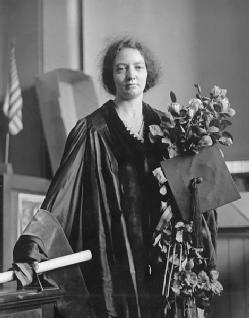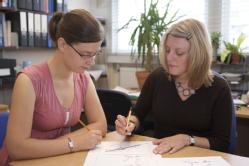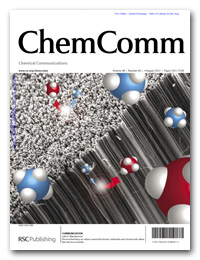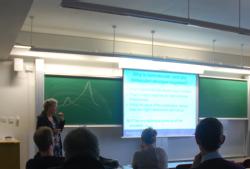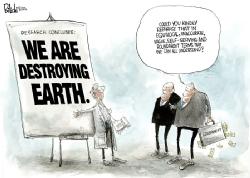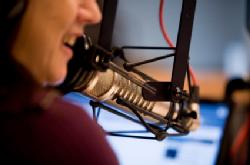Communication & Impact for Female Early Career Researchers
Conference, training and networking for postdoctoral researchers
30 July – 1st August 2014
Cumberland Lodge, Great Windsor Park and BBC Broadcasting House
Following the inaugural course last year in January
we will run a second event in Summer 2014
Sponsored by the Royal Academy of Engineering, EPSRC, Royal Society of Chemistry, the Institute of Physics and the University of Warwick
As a female researcher, how best can you succeed in science?
Effective communication is one of the key drivers for achieving your goals, whether it be at conferences, in journals, on the web, with the media, or at job interviews. Attending this course will build on your existing skills and confidence in giving talks, presenting posters, writing science to different audiences and getting jobs. Attending this course will enable you to better present and communicate your research both within your field and to non-specialists. Much of the material is appropriate for everyone but a theme running throughout the course is to address specifically how female post doctoral researchers can be more effective communicators in public fora. Men, independent fellows and newly appointed academics are very welcome and will benefit. We'll develop these ideas through workshops and discussion but also, unconventionally, through media. Even if you do not harbour ambitions to be a media star, skills in broadcasting and journalistic communication are directly transferrable into your day-to-day scientific career.
Female scientists are under-represented at senior levels in both academia and industry. This course will also examine why this is so, and offer delegates advice and training on how to maximise their career prospects via effective communication skills, networking and mentoring. Delegates will be encouraged to network and collaborate with each other before, during and after the course. For more information on why we have created this course and what is contains go to: http://www.sciconnect.co.uk/blog/2012/11/women-in-science-and-the-media/. In summary the course content is as follows.
For more information please see below and/or contact Professor Alison Rodger: a.rodger@warwick.ac.uk.
To register please go to this page. There is some funding available to cover the course delivery costs. Currently we have support from:
- the Engineering and Physical Sciences Research Council
- the University of Warwick for its members of staff
- the Royal Society of Chemistry for its members (please put your membership number on the application, postdoctoral chemists who are not members are offered a special membership rate of £36)
- the Insitute of Phsyics for Physicists for physicists
- Royal Academy of Engineering for engineers
To apply for a grant you need to fill in this form then go to the registration page and upload your file with your application. I
Course delivery costs for the above researchers are available on application via the registration page.
When: 30 July – 1st August 2014. The course begins at 6 pm on 30th and will finish in London late in the evening of 1st August at BBC Broadcasting House.
Main course leaders:
Freelance journalist and science writer. Former Senior Reporter & News Features Editor at Nature; previously a reporter and features editor at New Scientist. Claire's awards as a science writer include an Association of British Science Writers Award in 2004 and a Medical Journalists' Association award in 2001. Claire has a doctorate in developmental genetics from Oxford University.
Gareth MitchellGareth Mitchell is a Lecturer in broadcast communication on Imperial’s Science Communication MSc. He teaches the theoretical and practical aspects of radio production but is also interested in how the emerging social media is shaping science communication.Outside Imperial, Gareth presents the BBC World Service technology programme "Digital Planet"/"Click" and is one of the presenting team on Radio 4’s Frontiers science programme. He also writes for Focus magazine and appears regularly on television and radio as a pundit and commentator on technology.
Helen Goulding
Helen is the director of Quercus Training, which provides continuing professional development training for scientists. She has a degree in earth science from Oxford University and a doctorate from the University of Southampton. During her career she has managed science communication programmes in UK Government and at the Wellcome Trust. Before founding Quercus, she managed major UK Government R&D programmes. She has been providing training in the workplace and at universities for ten years, helping staff to improve their personal effectiveness and become better managers and leaders.

